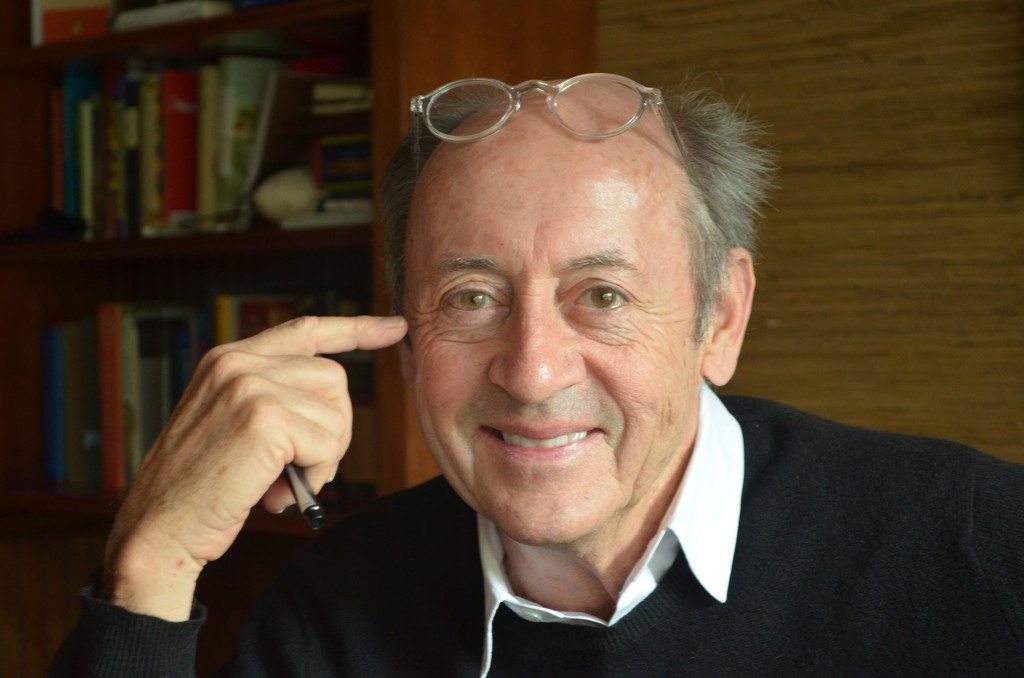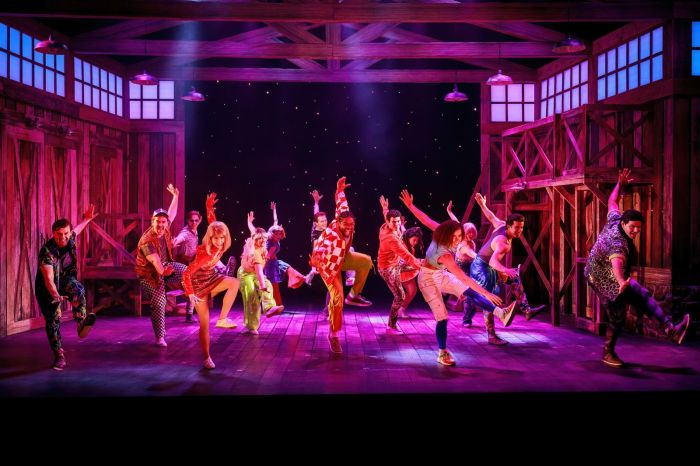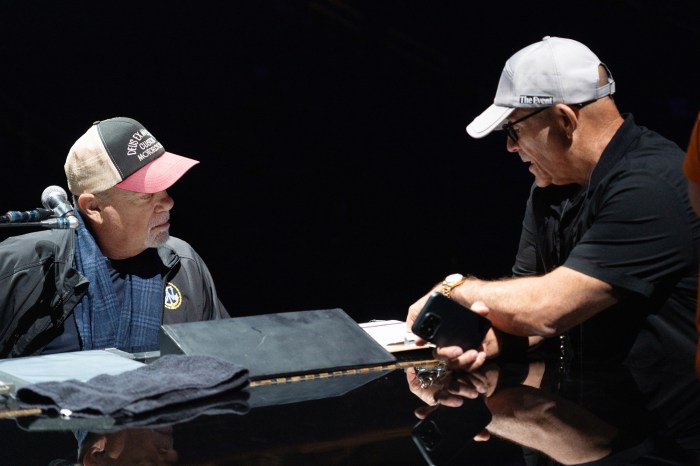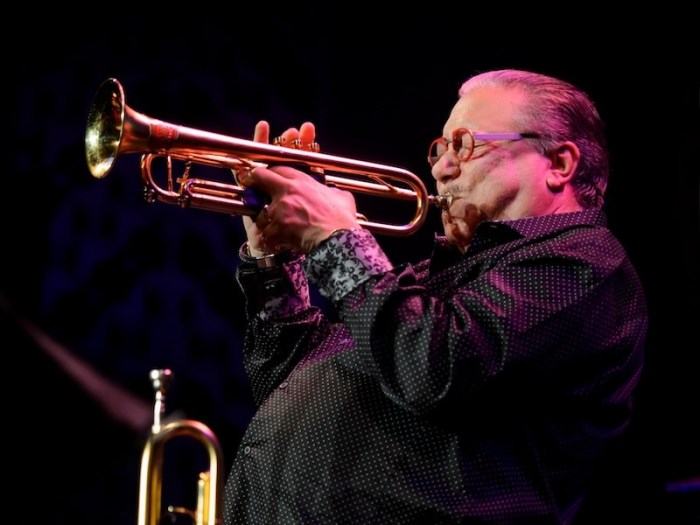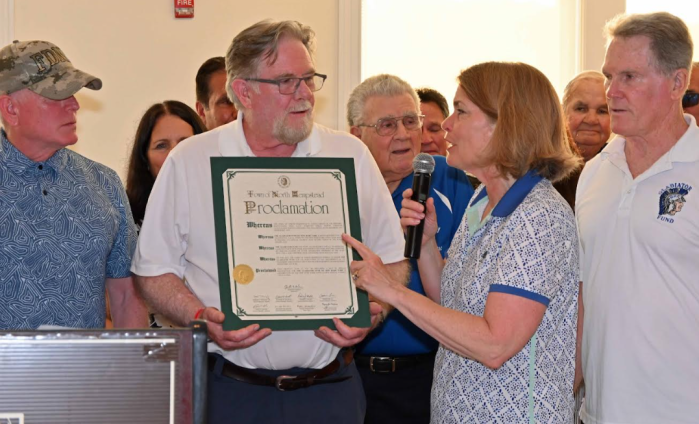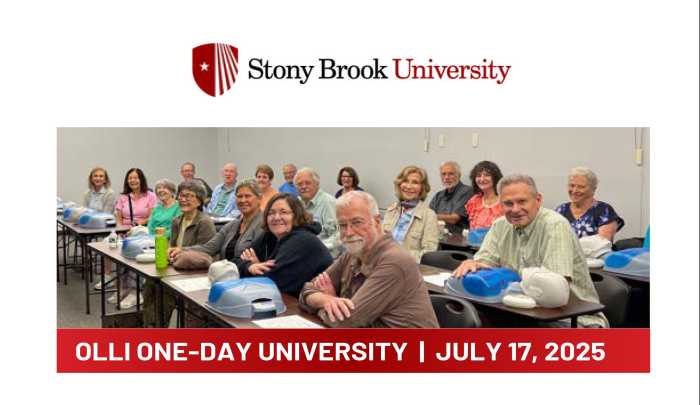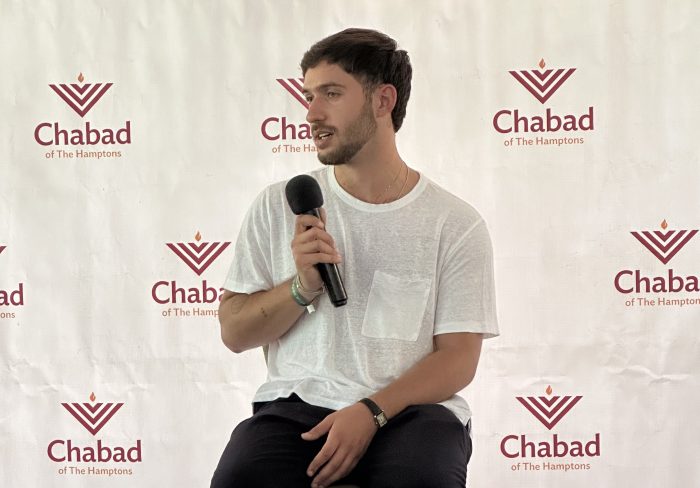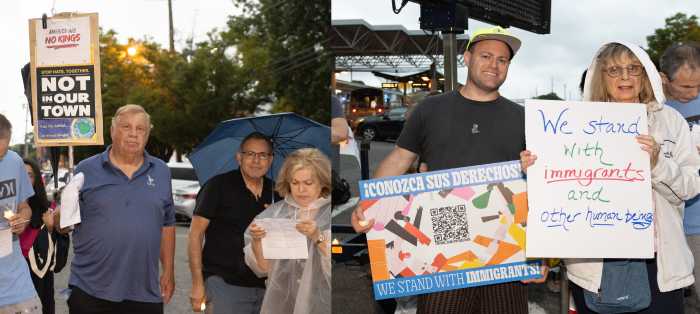
Robert Frost once famously said, “Poetry is when an emotion has found its thought and the thought has found words.” It’s a sentiment famed poet and former poet laureate of the United States Billy Collins shares, dating back to his first falling in love with the written word back in high school and trying to wrap his head around this literary art form.
“I didn’t understand a lot of poetry then. I could see that if you put certain words together, there’d be a certain kind of chemical reaction. There’d be a certain kind of odd contrast between them. And I liked images. I didn’t understand the whole poem but I liked images and metaphors. I sensed early on that there was an interesting power there of combining words,” Collins explained. “Occasionally you come across a group of words that seem very delighted to be in each other’s company (laughs). My mother recited poetry a lot around the house so I heard the sounds of poetry as a very young person. My ears were kind of attuned to this other kind of language when I was very young.” (To find out Billy Collins’ Mount Rushmore of poets, click here.)
 Collins will be trying to spread the gospel of poetry as part of his upcoming appearance at the NYCB Theatre at Westbury on Thursday, Sept. 17 as part of its ongoing Conversation Series that will feature future guests Michael Pollan and Roz Chast. For his appearance, Collins will be the guide for a literary journey in a forum that he’s done hundreds of times both in and out of the classroom over a number of decades. Along with being a distinguished professor of English at Lehman College in the Bronx, he is a senior distinguished fellow of the Winter Park Institute at Rollins College and is a member of the faculty of SUNY Stony Brook Southampton where he teaches poetry workshops. For him, “the theater of the classroom is good preparation for larger public arenas.”
Collins will be trying to spread the gospel of poetry as part of his upcoming appearance at the NYCB Theatre at Westbury on Thursday, Sept. 17 as part of its ongoing Conversation Series that will feature future guests Michael Pollan and Roz Chast. For his appearance, Collins will be the guide for a literary journey in a forum that he’s done hundreds of times both in and out of the classroom over a number of decades. Along with being a distinguished professor of English at Lehman College in the Bronx, he is a senior distinguished fellow of the Winter Park Institute at Rollins College and is a member of the faculty of SUNY Stony Brook Southampton where he teaches poetry workshops. For him, “the theater of the classroom is good preparation for larger public arenas.”
“What I usually do is read poems and talk about them. I try to talk between the poems kind of like a chatty disc jockey and I try to demystify the process. Not completely but I talk about how the poem got started sometimes,” the New York City native explained. “It’s very audience-friendly and I think the kinds of poems I write are pleasurable on second and third readings but are fairly easy to follow. A lot of poetry is not easy to follow when you’re just listening to it. You can listen to a story that has a plot so if your mother tells you a bedtime story, you can follow it. Or the modern version of that would be audiobooks.”
“You can drive in your car and listen to a novel. But a poem is a little like a three-ring circus. There are a number of things going on at the same time, not just a plot line to follow. Often the poem doesn’t translate very well from the page onto a stage. But most of my poems involve a little imaginative journey from one place to another. And that’s usually from a known familiar place to a place that I’ve created in a poem. And I’m a pretty reliable guide in taking readers through that journey.”

Collins’ reputation as a poet has found him with a following that includes people of all background and age groups and it may have something to do with his approach that is less autobiographical and more about the topics that strike his fancy. In the past, some of his works have ranged from how the three blind mice became blind to how 300 sheep were needed to provide vellum to create the Gutenberg Bible. Such eclecticism has not only led to his sharing the stage for readings/performances with the likes of Paul Simon, Aimee Mann and Sir Paul McCartney, but a demand for his work that’s resulted in 10 collections of poetry. Then there’s his having been named poet laureate of the United States from 2001 to 2003, an unexpected honor that he initially thought was a far more innocuous opportunity.
“The secretary in the English Department at Lehman College in the Bronx where I’ve taught most of my life told me that the Library of Congress called and here was the number. I waited until I went home. There’s a reading series at the library and in fact, if the poet laureate wants to, he or she can conduct that series. I thought I was being asked to read at the Library of Congress,” he recalled. “Then I returned the call and was put through to all these people and then the call went all the way up the chain to the Librarian of Congress and he said I was poet laureate. I was dumbfounded. I have a very rich [dream life] featuring self-aggrandizing fantasies of myself but I promise you, it never, ever occurred to me. He described a few things that the job involved but when I hung up the phone, I had no idea what that meant. Was I supposed to dress or act differently? It was such a heavy title that goes back to British history for 360 years or so. You get a beautiful office in Washington, DC, with a view of the Capitol and it’s all quite a heady experience.”
 While his appointment was brief, Collins gave a reading and lecture at the Library of Congress and started a program called Poetry 180 (later made into a pair of anthologies by Random House, his publisher) that introduced interesting, humorous and accessible poetry into American high schools, one for every day of the school year. He also wrote a poem called “The Names” at the request of Congress, to commemorate the first anniversary of 9/11 that he wound up reading in front of the Joint Session of Congress. When asked about the state of poetry today, Collins points out that it’s simultaneously experiencing an amazing rebirth despite the fact that more of it isn’t being written, a fact that isn’t necessarily contradictory due to the fact that readership of the genre tends to be made up of the same people creating it. Despite this scenario, Collins remains hopeful that this scenario is changing.
While his appointment was brief, Collins gave a reading and lecture at the Library of Congress and started a program called Poetry 180 (later made into a pair of anthologies by Random House, his publisher) that introduced interesting, humorous and accessible poetry into American high schools, one for every day of the school year. He also wrote a poem called “The Names” at the request of Congress, to commemorate the first anniversary of 9/11 that he wound up reading in front of the Joint Session of Congress. When asked about the state of poetry today, Collins points out that it’s simultaneously experiencing an amazing rebirth despite the fact that more of it isn’t being written, a fact that isn’t necessarily contradictory due to the fact that readership of the genre tends to be made up of the same people creating it. Despite this scenario, Collins remains hopeful that this scenario is changing.
“Essayist Joseph Epstein summed this up by saying that [poetry is] flourishing in a vacuum and that’s putting it better than I have,” Collins said. “It would be like going to a ballet and everyone in the audience is wearing a tutu. But if I can say it modestly, I think my poetry and my efforts with Poetry 180 is breaking this vicious cycle a little bit and getting the public interested again in poetry.”
Billy Collins will be appearing on Sept. 17 at NYCB Theatre at Westbury located at 960 Brush Hollow Rd. in Westbury. For more information, call 877-598-8497 or visit www.livenation.com.




